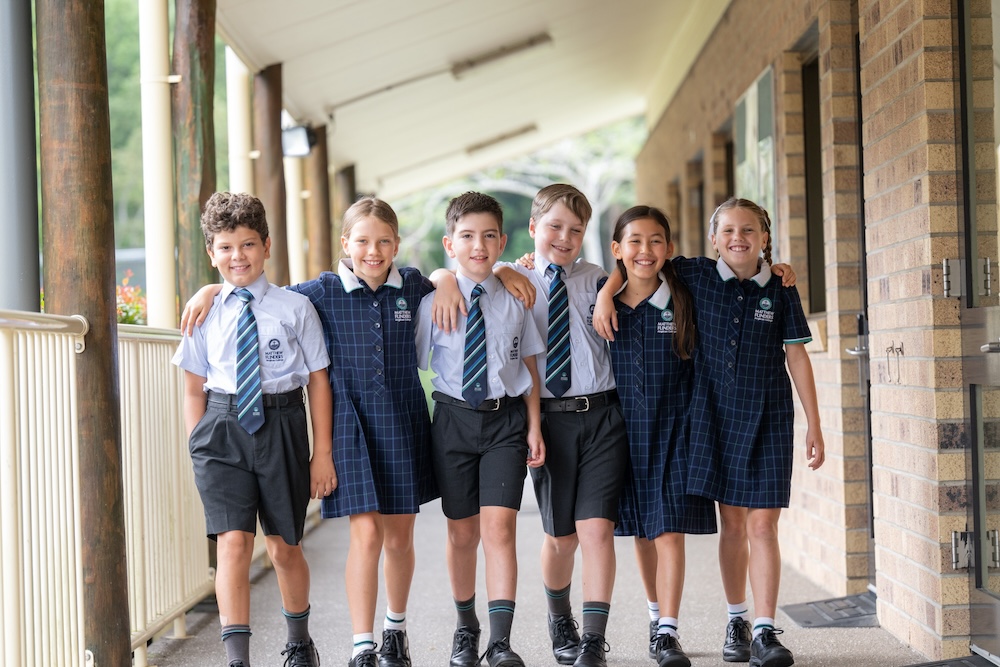Article by Ms Kersti Mowat, Head of Junior Primary, Matthew Flinders Anglican College
At Matthew Flinders Anglican College, our approach to preventing bullying goes beyond discipline—it is rooted in fostering belonging and connection.
Research reveals that when students feel valued, connected and respected by their peers and teachers, they are more likely to thrive and less likely to engage in or be affected by bullying.
How we Build a Culture of Belonging and Respect at Flinders
At Flinders, we are proactive in creating a safe, supportive and inclusive environment for every student. In our Primary School, there are many ways we promote acceptance and inclusion to build a positive culture of belonging and respect for all from Prep through to Year 6.
Once students transition to the Secondary School from Years 7-12, wellbeing and values lessons are woven throughout the curriculum and co-curricular programs.
Promoting Acceptance and Inclusion
Our staff team works actively to help students identify and challenge biases. Through the curriculum and co-curricular activities, we encourage students to appreciate and better understand diversity in backgrounds, interests and identities. These lessons and experiences form the foundation of a respectful and inclusive school culture. Examples include our World Religions unit, Harmony Day celebrations and i-Impact units, such as our Year 6 project on the Refugee Journey which enables students to go on a journey of discovery, empathy and understanding of the ever-changing situation faced by refugees in our modern world.
Encouraging Understanding and Compassion
Empathy is at the heart of preventing bullying. Our human-centred design thinking methodology is woven throughout our curriculum and explicitly teaches students to develop strategies for understanding others’ feelings and perspectives. Literature used across year levels also prompts reflection on characters' actions, fostering a deeper understanding of how empathy works in real-life situations.
Building Connections
Strong peer relationships assist in forming a safeguard against bullying. Our classrooms are structured using Kagan Cooperative Learning Structures that encourage collaboration, mutual respect and teamwork. Regular classroom activities such as Class Builders and Team Builders help students to bond, while team building activities with larger gatherings across cohorts extend and strengthen these connections beyond the classroom.
Providing Support and Clear Protocols
It is critical that students know where to turn for help. At Flinders, we have clear protocols for responding to bullying to ensure that reports are addressed swiftly, directly and with care. We use a restorative approach to resolve issues, and focus on supporting students who have felt disrespected or marginalised. We also educate students about the impact of inappropriate interactions, words or actions. By addressing the root causes and supporting both parties, we aim to foster long-term behavioural change and enhance a positive learning environment for all.
Key Takeaways for Parents
Parents play a vital role in supporting a culture of kindness and inclusion. Here are four key ways you can help your child grow their social skills and awareness in your home environment and family life.
- Promote Inclusiveness and Open Communication:
Encourage your child to be inclusive, such as by inviting someone to play if they notice they may be feeling left out of a game. You can also teach your child to stand up against bullying by speaking out or alerting an adult if they witness hurtful behaviour. On the flipside, if a child has used hurtful words against others, for example, it's important they feel safe to admit their mistakes and be accountable, acknowledge their impact and discuss ways to restore the relationship. This is how we learn to build healthier communication skills. - Celebrate Differences:
Remind your child that differences should be respected and celebrated, and discuss how diversity in all forms can enrich friendships and the school community. This can be supported by choosing books to read and watching documentaries and movies as a family that can spark conversations about respecting people’s unique perspectives and situations. - Stop the Spread of Harmful Messages:
Reinforce the importance of not spreading harmful rumours or messages, and encourage kindness, integrity and empathy when your child interacts with others. Perhaps discuss strategies that you could use as a family to help with mindful communication, such as the THINK strategy which asks five key questions to filter out inappropriate or hurtful comments: “Before I speak, write or type, I think “Is this…True? Helpful? Important? Necessary? Kind?” - Carefully Monitor Your Child’s Online Presence:
Harmful interactions online have increased exponentially in recent years. We strongly discourage our students from using any social media platforms and encourage parents to regularly check their child’s online presence.
Moving Forward Together
At Flinders, we believe that by working together with our students, staff and families, we can cultivate a school community where every student feels connected, valued and supported.
By focusing on values of belonging, compassion, courage and respect we can protect our students from the harm of bullying and help them to thrive academically, socially and emotionally, with a strong moral regard for others.
Our Flinders parents are a vital part of this effort as they partner with us to create a school culture of respect and care.

